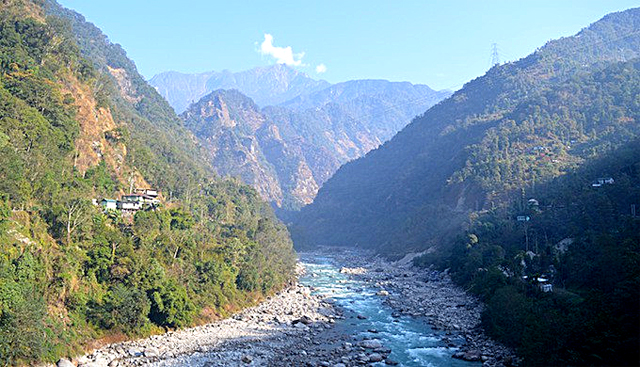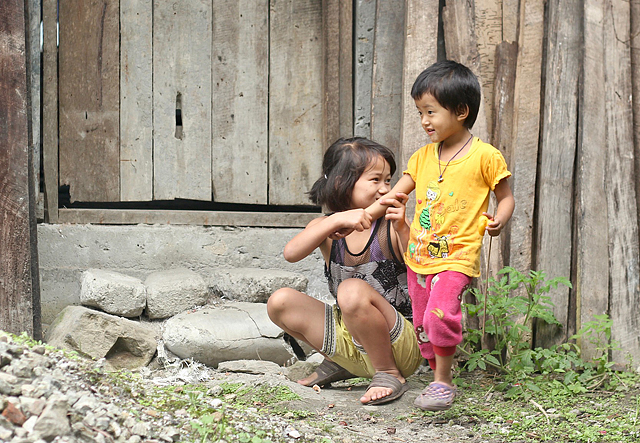Minket Lepcha, a woman from Darjeeling, has devoted several years to promoting and protecting the Teesta River through her skills as a filmmaker. A news story published on May 10 in EastMojo, an online news platform from northeastern India, provided details about the film she has produced and the effects it is having on audiences.

With its source in the mountains of North Sikkim, the Teesta flows 315 km south to the Bay of Bengal. It is important in the folklore of the Lepcha as Rongnyu, a river spirit that merges with Rangeet, another river spirit, and together in the love story they enter the waters of the bay. The sacred nature of the river helps define the Lepcha culture.
In 2007, Lepcha activists formed a group called Affected Citizens of Teesta (ACT), a few years after the government had announced plans to build a network of hydropower dams along the Teesta and its tributaries. The hunger strikes of the activists captured the news, which particularly emphasized the nonviolent nature of the protests, a salient characteristic of Lepcha society. The story of the dam opponents can be traced through the Peaceful Societies website News and Reviews reports on the subject.
Minket Lepcha, 35, decided to capture the story of the river and the devotion of the people to it on film—36 hours of footage consisting of interviews with fishermen, anglers, children, shamans, farmers, engineers working on the dams, conservationists and so on. Her finished product, “Voices of Teesta,” is a 41-minute film that was first shown in September 2016 at the fourth Woodpecker International Film Festival in New Delhi. She received the Young Green Filmmaker Award for the work. She also produced a 22-minute version that she presented at a conference about the Lepchas on April 27, 2019, in Gangtok and a 5-minute version that can be viewed on YouTube.
Minket, in her interview with EastMojo, told the reporter that the film is “not just about the soothing choir of the river flowing… What began as the love story of two river[s] is nothing shy of a heartbreak now with dams strangling the river off its flow and eventually [it] dying out as a mere stream.”
Minket is a graduate of the Loreto Convent in Darjeeling and the Shri Ram College of Commerce, Delhi University. When she returned to Darjeeling in 2012, she decided to go into making short films, particularly ones about folklore subjects. She was documenting a story about the Yeti, the abominable snowman, and its venture down into the hills to meet the Rongnyu (Teesta) spirit. That led her into investigating the ongoing protests about the threats to the river system.

The filmmaker has spent a lot of her time in recent years reaching out to children in Sikkim, other parts of India, and Nepal about the river, the folklore that is part of its story, and the importance of saving it and the surrounding natural environment. She says that the folklore “has helped the children connect with the river at a much deeper level in an emotional way which our ancestors and elders used to have.” But people currently, she adds, lack that emotional connection. People now think that water is only available in bottles that come from factories.
She has focused most of her energies on presentations about the folklore of the Teesta in schools. She adds that she had recently done a presentation for students in a school for the blind in Namchi, South Sikkim. But it’s clearly a struggle. She finds that in Sikkim, children are resisting the folklore—“they tell me it is just folklore.” They want logical explanations instead, she says; they have lost the ability to wonder. But their elders still associate the Teesta with beliefs in the. supernatural, she concludes.